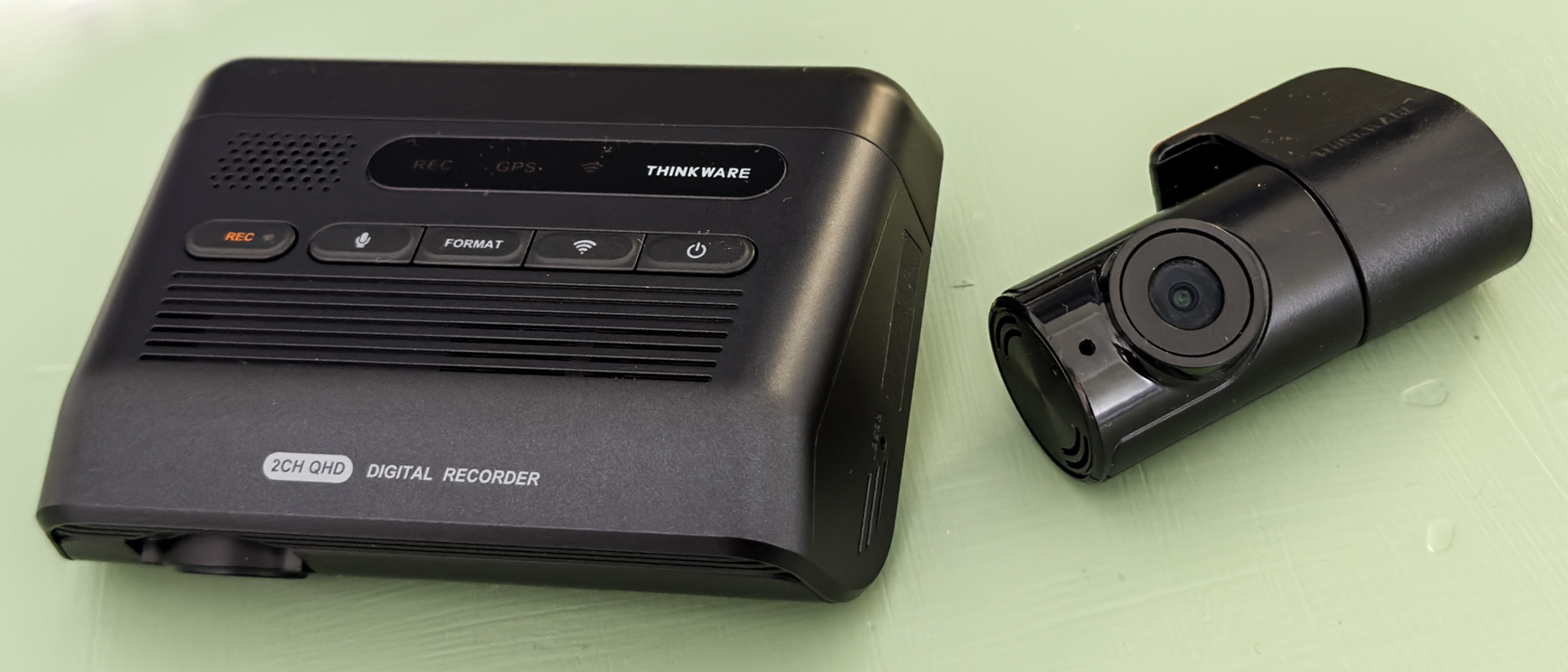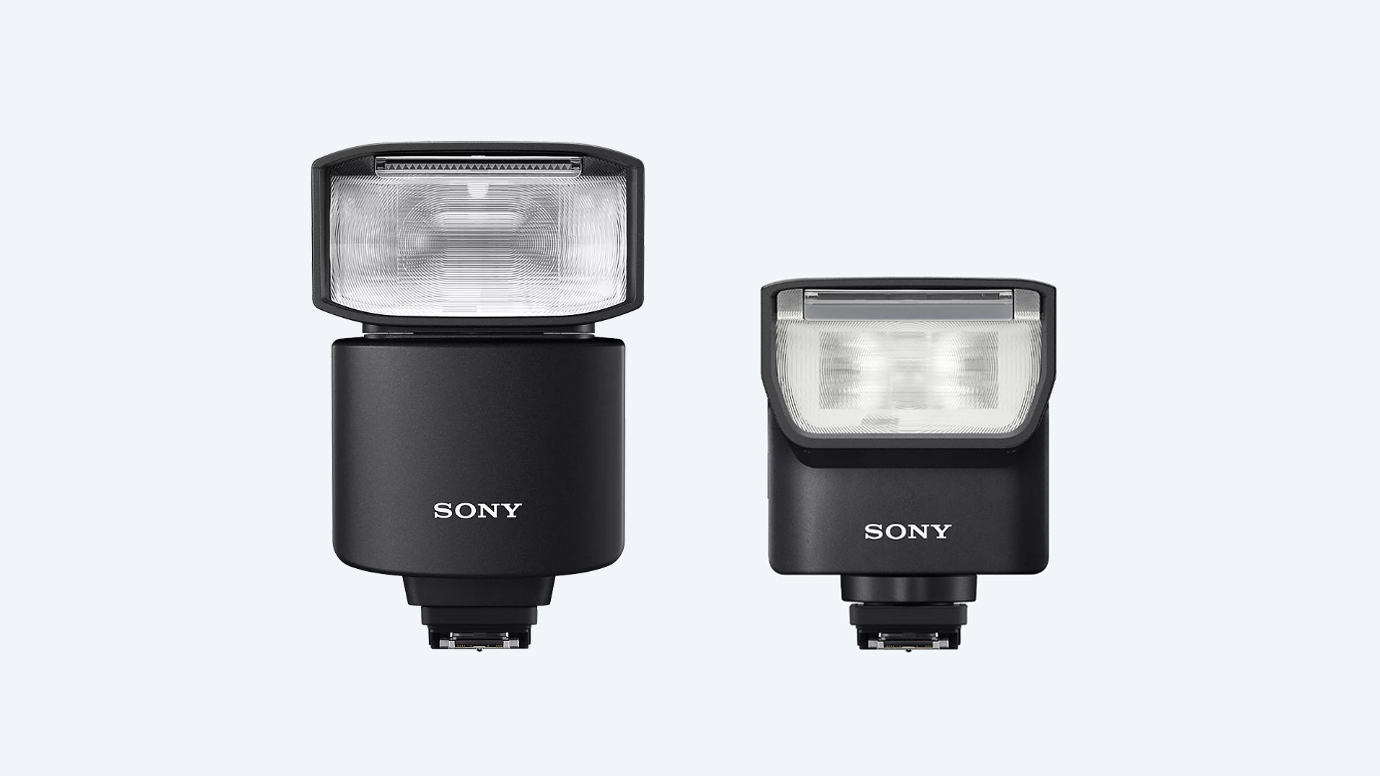Digital Camera World Verdict
The Thinkware Q1000 is a dual-camera dash cam system that records in 2K resolution to the front and rear. It also boasts superior nighttime recording, integrated Wi-Fi and Bluetooth for smartphone connectivity, GPS for speed logging and driver assistance systems, and a design that makes it looks like a factory-fit option.
Pros
- +
Excellent low-light recording
- +
Compact, distraction-free design
- +
Integrated GPS, Wi-Fi and Bluetooth
Cons
- -
More expensive than the equivalent Garmin
- -
Lacks integrated GPS
- -
No Wi-Fi, Bluetooth or smartphone app (for those who want them)
Why you can trust Digital Camera World
Thinkware’s Q1000 dash cam sits above the company’s mid-range X-series and entry-level F-series products, while slotting in just ahead of the similarly-styled Q800 Pro, but below the flagship Thinkware U1000.
At the time of writing, in October 2022, Thinkware has the Q1000 and U1000 both priced at $330/£249. The latter benefits from 4K video for its front-facing camera, but the Q1000 reviewed here has Thinkware’s new, third-generation of Super Night Vision, so promises to produce high-quality low-light footage, albeit at the lower 2K (1440p) resolution.
Thinkware X800 specifications
Resolution: 2K, 2560 x 1440 (front and rear)
HDR: Yes, front only and but only as part of night vision
Field of view: 156 degrees (front and rear)
Display: No
Battery: No, DC cable and supercapacitor
Voice control: No
Dimensions: 100.3 x 71.9 x 30mm
Weight: 140g (front) 30g (rear)
Key features
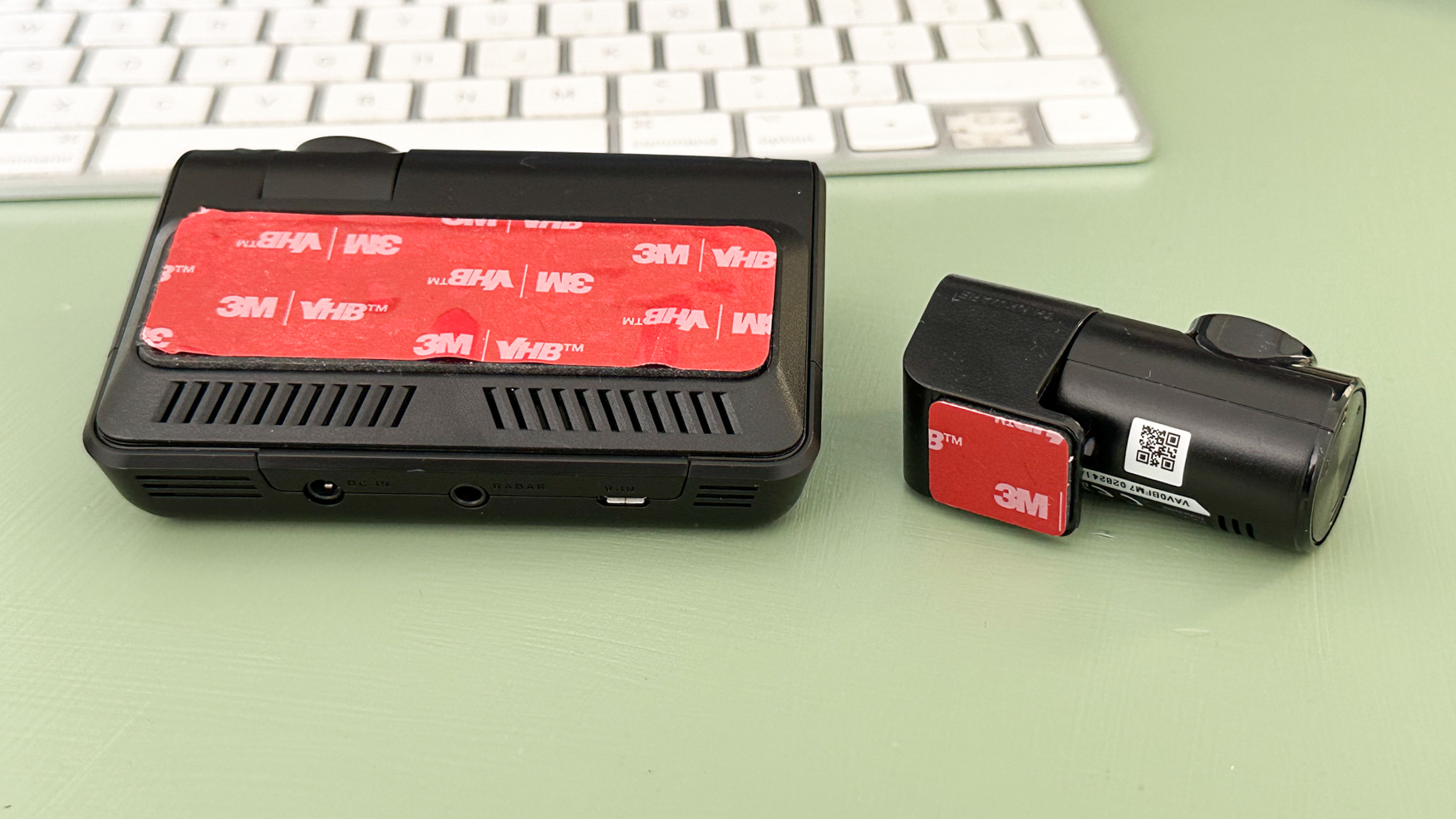
The headline-grabbing features of this dash cam are how it records at 2K resolution through both the front- and rear-facing cameras, and how the system also benefits from Thinkware’s ‘Super Night Vision 3.0’ technology, which uses a Sony Exmor R Starvis sensor.
Thinkware says the Q1000 has a form of HDR, which it calls Digital Overlap High Dynamic Range, which is used in combination with noise reduction technology to improve nighttime footage. The goal here is to produce better image quality, but also remove grain and lens flare from low-light recordings.
When used with a hard-wiring kit, which gives the dash cam a constant power supply from the car’s own battery, the Q1000 has impact detection while parked. There’s also a timelapse mode that captures an image every two seconds, and a G-sensor that begins recording within a second of a parking prang being detected.
Integrated GPS means the Q1000 benefits from driver assistance features like speed camera and red light warnings, as well as average speed camera warnings and forward collision alerts. There’s also an alert to let you know when the driver has set off, and lane-departure warnings too.
Build and handling
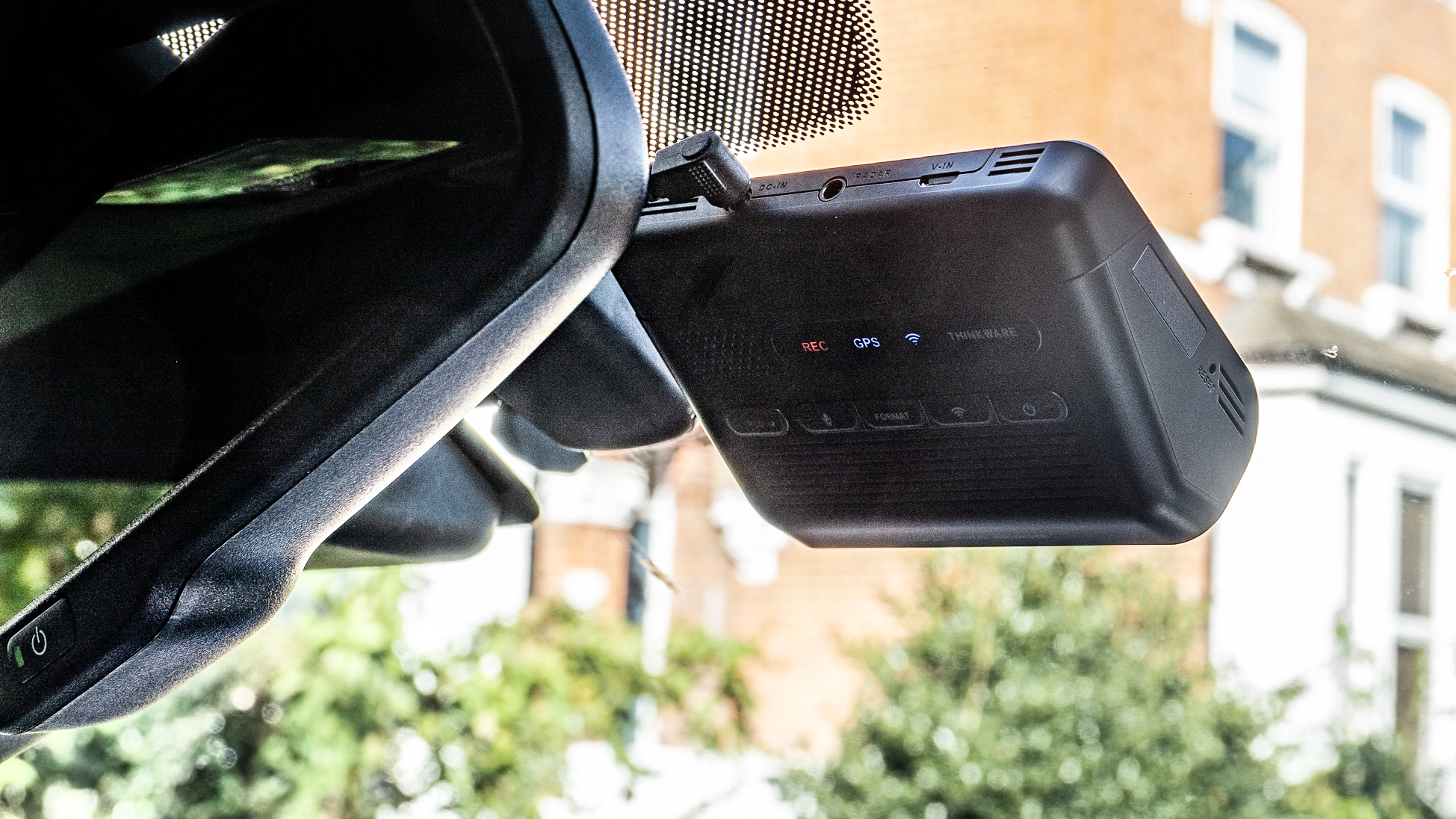
The Thinkware Q1000 is a dash cam without a display. As such, it has a shallower, more streamlined profile than some others. It is designed to hug the windscreen and fit behind the car’s central rearview mirror, where its buttons can be accessed but it isn’t a distraction to the driver.
The camera lens has about 45 degrees of adjustment, so should work with just about any windscreen, and there are status lights to show when video is being recorded, when the device has a GPS signal, and when Wi-Fi is enabled (for transferring footage to the Thinkware smartphone app).
Thinkware offers the Q1000 on its own for $330/£249 or with a rear camera for $430/£349. Our review sample came with both, and we were pleasantly surprised to see how the tiny rear camera also records at 2K resolution (2560 x 1440) and has a 156-degree lens to match the front. A long cable is also included for attaching the additional camera to the main unit.
Our only criticism is how the camera’s mounting plate is quite large, taking up more windscreen space than most other dash cams we’ve used. This is especially obvious when the camera is removed and the large plate remains in place.
Performance
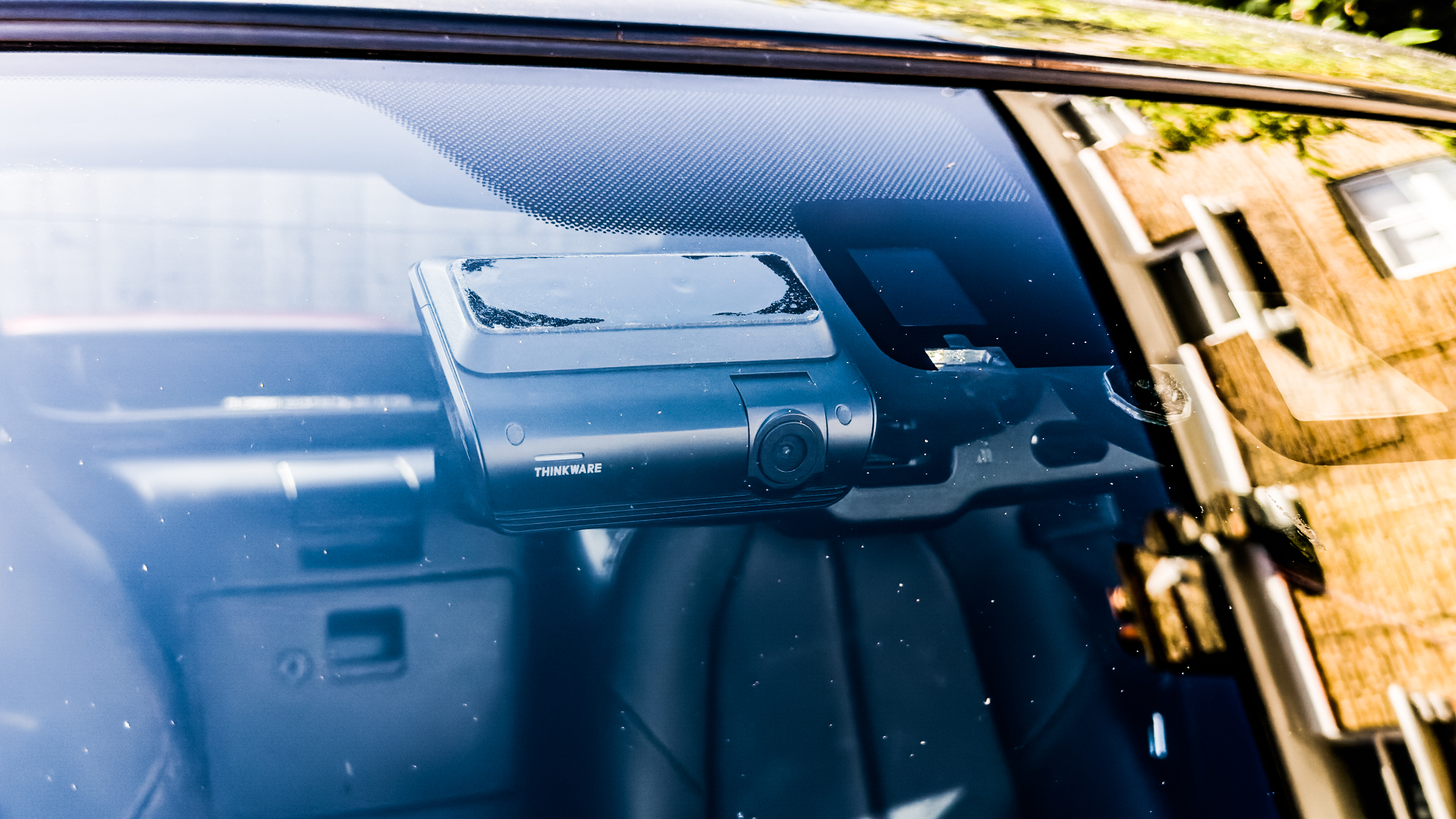
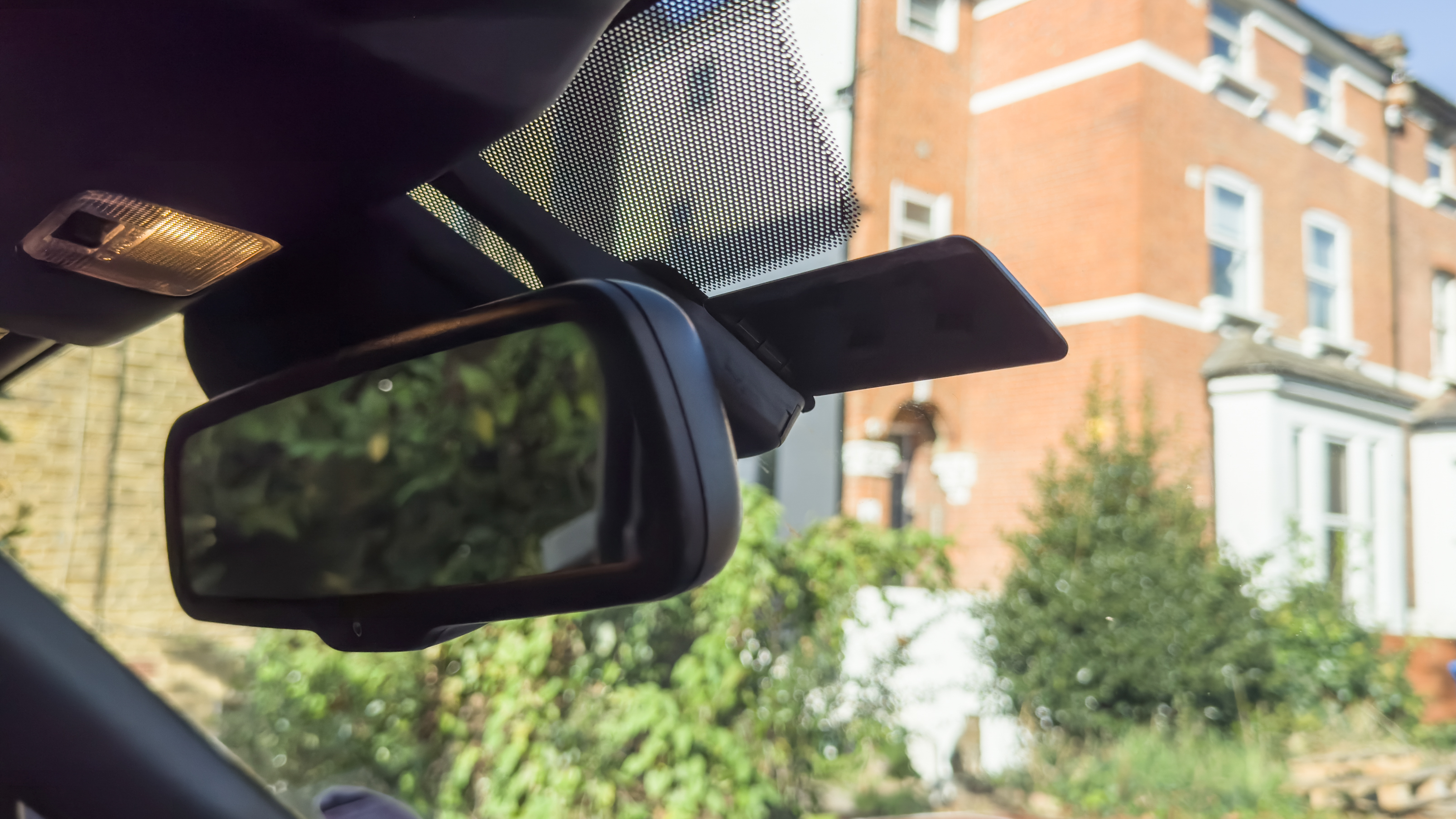
The high resolution of both cameras means recordings are great; sharp and clear, with plenty of detail to help read road signs and vehicle registration plates. The footage is also stable and doesn’t distort too much at the edges. We really like how the front and rear cameras have the same resolution, lens, and frame rate – unlike many other kits where the rear camera is of lesser quality.
Like other dash cams, footage on a very sunny day can suffer from reflections coming off the windscreen, and any dust or dirt on the screen is exaggerated. The included polarising lens cap helps to eliminate this, but there’s only one in the box, despite this being a two-camera kit.
Nighttime footage is also pretty good, but number plates can often be overexposed and washed out by the headlights of other vehicles. This is true of pretty much every dash cam we have ever used, and low-light performance is otherwise strong.
Integrated GPS is useful to add speed to your videos, but also enables driver assistance features like red light and speed camera warnings, and there are forward collision and lane departure warnings too. These work well, but drivers who don’t want such systems, or already have them integrated with their car, should save money and pick up a cheaper dash cam elsewhere.
Verdict
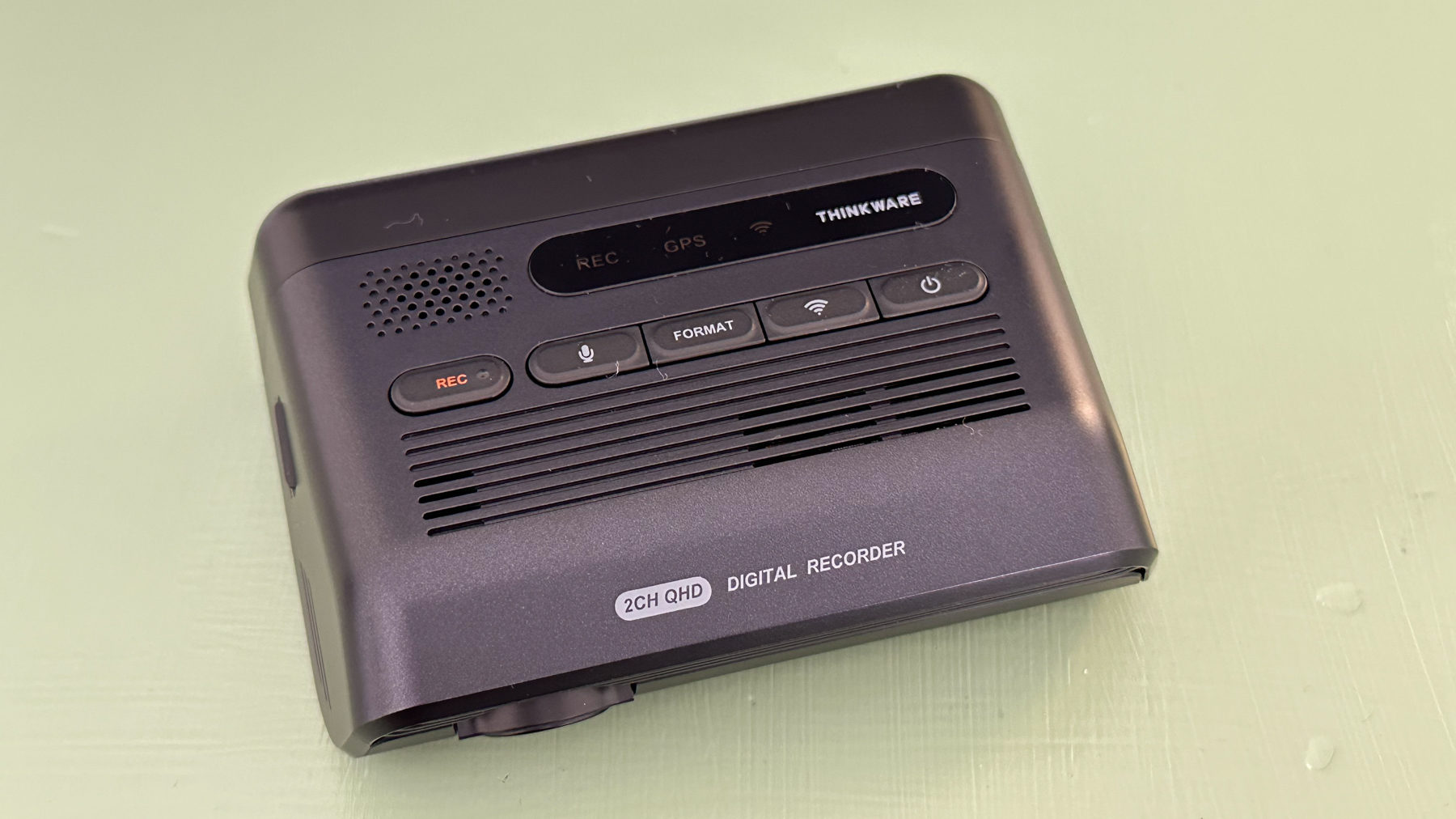
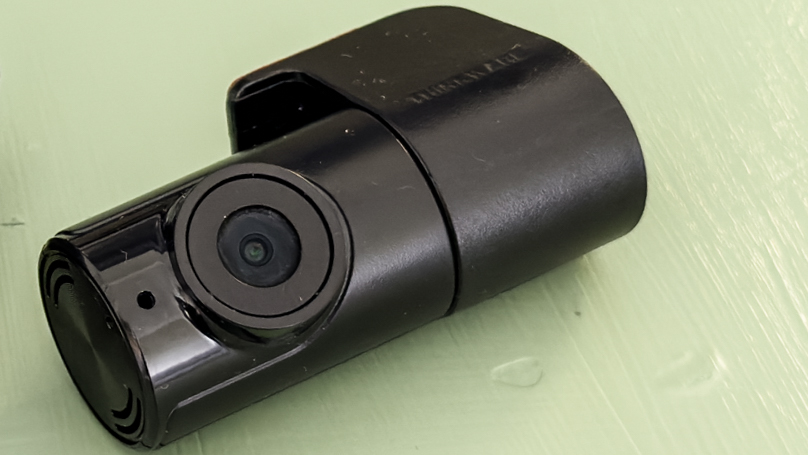
From collision warnings and speed camera alerts, to the inclusion of an internal rear camera, the Thinkware phone app, Wi-Fi, Bluetooth and the Thinkware Connected service intended for vehicle fleet operators, there’s a lot here to get your head around. If you just want a dash cam to record the view ahead, we suggest you save some money and buy a simpler system.
But if you want a dash cam that has front and rear vision, smartphone connectivity, driver assistance functions, and a design that (once hardwired into your vehicle) looks and operates like it was fitted at the factory, the Thinkware Q1000 is hard to fault.
Video quality is very good, day and night, the system is easy to use once set up, and the assistance systems work well for those who want them. But, at $430/£359 for the dual camera system tested here, the Q1000 is an expensive dash cam. Buyers should make sure they intend to use every feature, and hardwire the camera into their vehicle, to ensure they get their money’s worth.
Read more guides:
Best dash cams
Best front and rear dash cams
Best Uber dash cams
The best camera phones today
Best indoor security cameras
Best outdoor security cameras
The 10 best action cameras
The best helmet cameras
Best backup camera
Alistair has been a journalist since 2011 and used to be Deputy Technology Editor at IBTimes in London. His specialist tech subjects include smart home gadgets, phones, wearables, tablets and dashcams. He is the host of The AutoChat Podcast.
